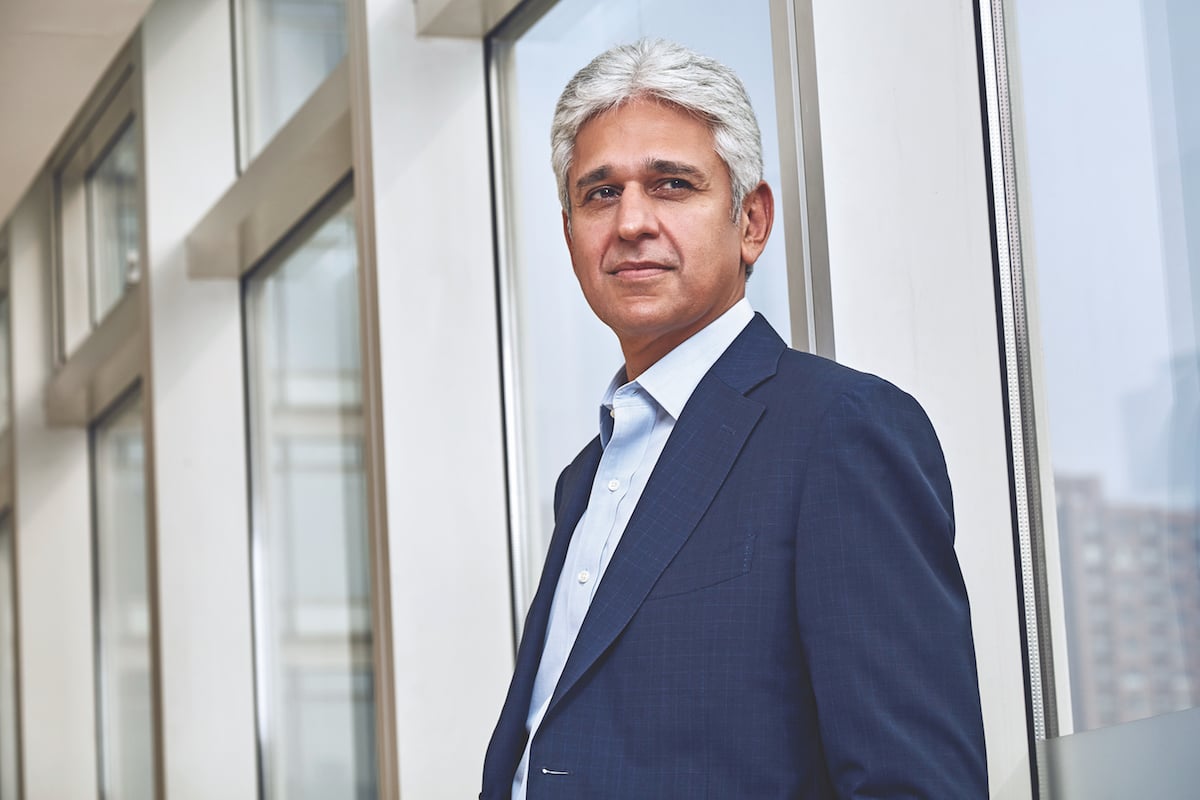Rashid Qureshi, Chairman and CEO of Nestlé Greater China Region (GCR), enjoys keeping fit, from playing tennis and golf to going for a run. Which is why, when asked what his favourite Nestlé chocolate is, he laughs. “That’s a very tough question.
I don’t eat too many sweets,” he says, amused, “but whenever I eat Nestlé chocolate, it’s the Swiss brand called Cailler.” Rashid specifically describes Cailler’s dark chocolate range with nut chunks. “I really love it and dark chocolate is healthy as well.”
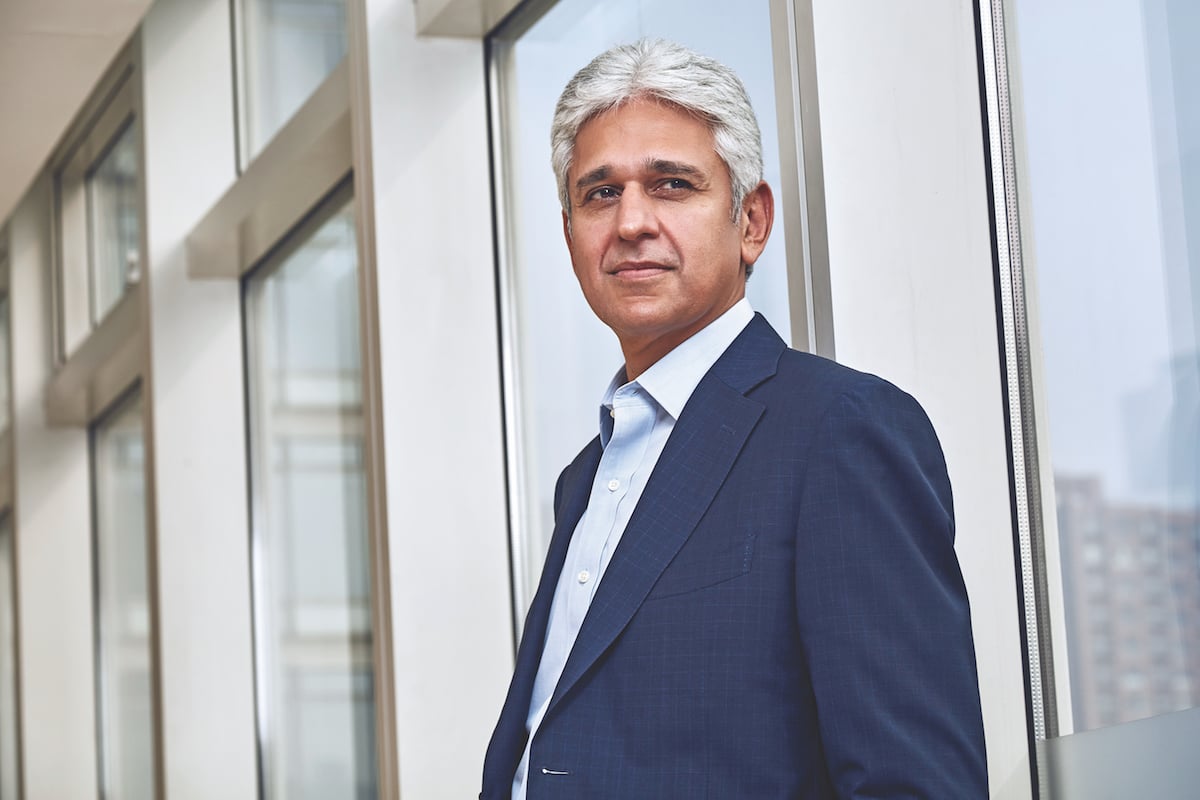
A little research shows Nestlé is a food production powerhouse. With more than 2,000 brands and a presence in 189 countries, it’s no wonder it’s the largest food company in the world. At its heart is a mission to provide nutrition – a purpose established 153 years ago by founder Henri Nestlé, who developed an infant food for babies who could not take their mother’s milk.
“Henri saved the life of a young baby who was suffering from malnutrition by developing a small kitchen recipe of cereal and milk – which is now called CERELAC,” Rashid explains. “And that was the birth of Nestlé. Nutrition is in our DNA.”
Nestlé’s reach spreads across many sectors and brands; coffee including Nescafé and Nespresso, drinks from Milo to Nesquik, ice cream favourites including Häagen-Dazs and Mövenpick, the chocolate and confectionary we all know from Aero and Kit Kat to Smarties and Milkybar, bottled water including Perrier and S.Pellegrino, pantry staples like Maggi and Carnation evaporated milk, and frozen meals including Lean Cuisine, as well as a range of cereals, baby food, and pet food for dogs and cats.
The company’s overarching purpose of enhancing nutrition was one of the main reasons Rashid decided to join more than 30 years ago. “When people ask me, ‘Why have you been with Nestlé for so long?’, I always tell them, ‘Nobody else offered me a job, otherwise I would have gone’,” Rashid laughs.
“But that’s a joke. The real story was about the purpose of the company and its values of trust, respect and excellence. That was by far, for me, more important than anything else.”
A native of Pakistan, Rashid always had plans to work in a fast-moving consumer goods company – one that was well established and multinational. “My own perception was that if a company grows, you grow with it. Nestlé was a joint venture in 1990–91 when I joined. It ticked all the boxes and was starting to come into Pakistan quite strongly, so I joined.”
Rashid’s time at Nestlé has been a whirlwind of growth and opportunity. He spent seven years in marketing and sales in Pakistan, moved to its Egypt branch for three and a half years, returned to Pakistan for three years, then made his way to Australia for a year-long project.
From there, Rashid headed to Asia, starting in Malaysia as a General Manager for dairy over four years, then serving as Managing Director of Nestlé in Vietnam for five and a half years, later President Director of Indonesia for nearly two years.
Then, one fine day, Rashid was told he would be heading Nestlé GCR as the Chairman and CEO, which took effect in October 2016. “I felt very humbled and lucky because I think this is the best job in Nestlé,” Rashid muses.
Having already been impressed by the company’s purpose and values, the cherry on top for Rashid was how these matched with his own beliefs. “Nestlé’s a people-inspired company; everything starts with the people,” he says. “And for the people, it’s all about living the right values by demonstrating the right behaviours. The more good behaviours we demonstrate, the more values we live.
At the start of your career you don’t think too much about values. But what kept me with this company was that I have a very strong set of personal values which aligned with our company values. Once these values were 100% synced, I felt happy and engaged. The company has never told me to do anything which is not in line with my personal values.”
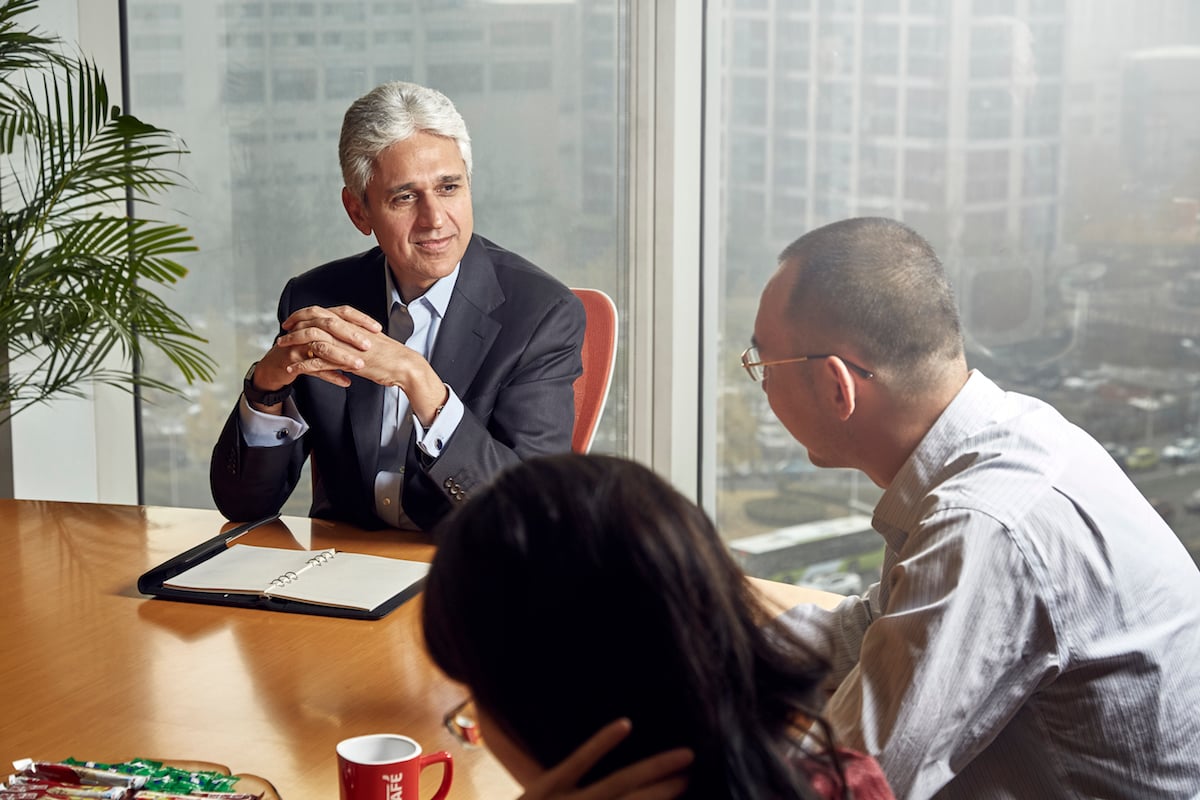
Around the world with Nestlé
When Nestlé decides to enter a country, it first considers establishing a new factory and looks at ways to improve food safety. “ Building a factory means you are committing to the country and saying, ‘We are not here for the short term, we are here for the long term’,” Rashid says.
“Many companies have mainly trading offices, which means if a country is doing great, the business does great, but if that country starts to wobble, the company can pack up their regional office of 25 people and move on.
“For Nestlé, a new factory is linked with the development of the people and, most importantly, related to creating shared value. It not only will create value for the shareholders but for the society at large as well,” he says.
Rashid believes that every company has a responsibility to create value beyond its shareholders. For Nestlé, it begins with developing the skills of its workers, branching out to three pillars: agriculture development, water and nutrition.
“For example, in Vietnam, I work with coffee farmers to make sure they produce better quality coffee at low cost that is also environmentally sustainable,” he explains. “Out of that, we are ensuring food safety, which we need for our raw materials. And we are also ensuring that a family’s income is improving so they can have a good quality of life.”
With factories all around the world, Nestlé doesn’t shy away from localising its products. In fact, it’s one of the reasons Rashid believes the company has survived for so long. “Food is local,” he says. “You have local tastes and local preferences. So our product portfolio, our route to market, our business model and our consumer preferences are different.
“Because food is local, each business model is local. There is a lot of autonomy given to these local markets and this flexibility is absolutely amazing because it’s not just Switzerland that is giving us innovations. In fact, more than 70% of the innovations we have originates from each specific market.”
Rashid says this localisation model is very different from other global companies. He believes that this empowerment and decentralisation further develops creativity and innovation.
“We always say that Nestlé’s a true multinational because around 1% of our turnover comes from Switzerland,” Rashid says. “It’s unlike many other multinational companies where 30–40% of their turnover comes from their home country.
“I often tell young people the reason why multinationals fail in other countries, or in China, is because they change their purpose and value, not their business model. The reason Nestlé’s so successful is because we don’t change our purpose and value. Instead, our business model is completely changed according to the local market conditions.”
The reason why Nestlé’s so successful is because we don’t change our purpose and value. Instead, our business model is completely changed according to the local market conditions.”
Rashid points to the variations of products in different countries depending on consumer taste. “I’m a Nespresso drinker and we have more than 100 recipes of coffee at Nestlé because each market taste profile is very different,” Rashid says.
It is this differentiating factor that has seen the company survive for more than a century. “Nestlé is willing to change everything when it comes to a portfolio business model. The two things we don’t compromise is our purpose – which is to enhance the quality of life and contribute to a healthier future – and our values. These act like a glue that connects us within a country, a region and globally.”
A slice of the pie
The GCR is the second largest market for Nestlé in the world, with 33 factories and a 50,000-strong workforce. Nestlé is well entrenched in the region, producing a diverse range of national and international brands.
It includes coffee giant Nespresso as well as local brands it acquired through joint ventures such as Totole, a leading bouillon producer, and Hsu Fu Chi, a Chinese confectionary brand. Nestlé’s GCR also has five innovation centres, a dairy farming institute, a food safety institute and a coffee centre.
Rashid explains that the Chinese market is unique because of its consumers. “Over the next five years, more than 65% of consumer growth will come from millennials,” he says. “These millennials are from single-child households and have been exposed to great products and services worldwide through Alibaba, JD.com and other ecommerce sites.
They want more personalised, nutritious and organic food because they are young and want to try new things.”
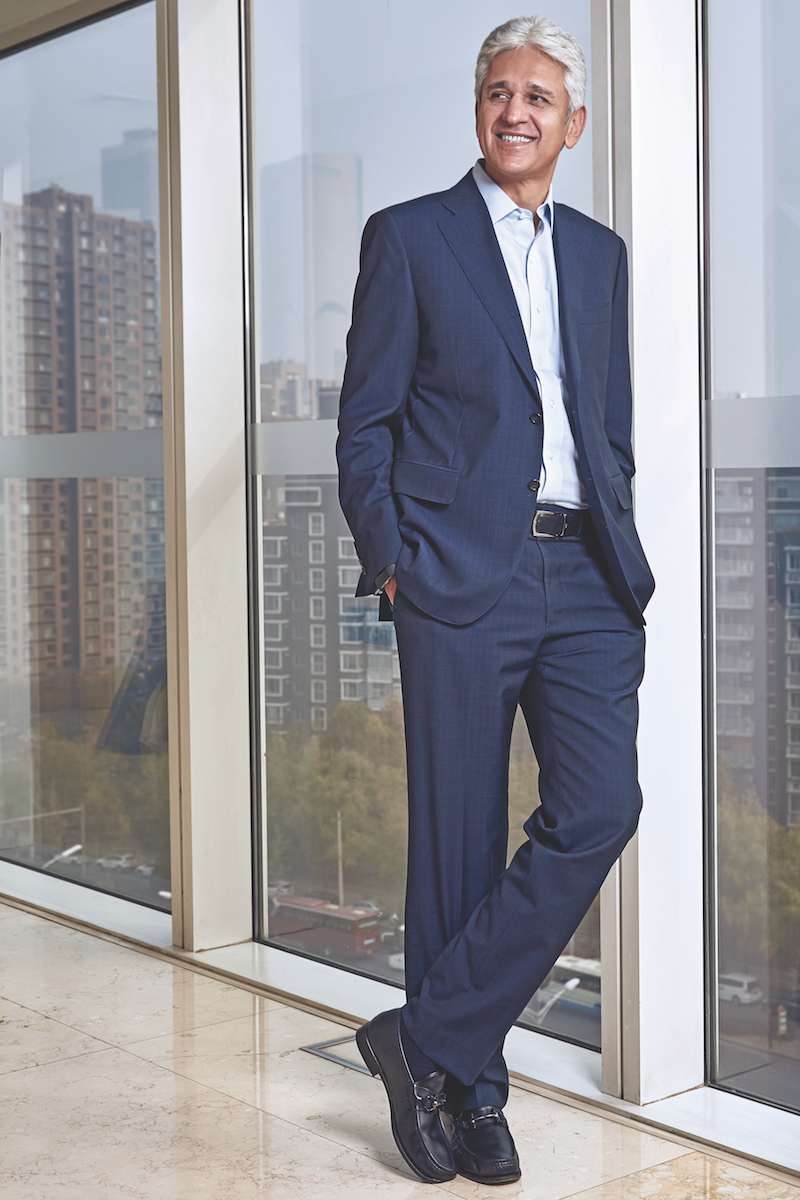
As a result of these trends, it means Nestlé has to constantly release new and innovative products. “The life of our innovation in a country like China is not more than six to eight months,” Rashid says.
“Because the scale is so big – I’m talking more than 400 million millennials in the next five years – things will change very fast.
And if you miss the opportunities that arise from that, then you will absolutely miss future growth in this market.
“In China, the only way to win is to look at the future you want; look at what capabilities, business modelling and people you need, then work on them. China is ruthless. With the speed of change, if you are playing catch-up or saying, ‘I will do this two years from now’, it is already too late.
You need to proactively build the organisation for the future, and if you can do that, you can get excellent results for the company. As a professional, it is the most satisfying job despite being very tough.”
You need to proactively build the organisation for the future, and if you can do that, you can get excellent results for the company.”
Rashid adds that with Chinese consumers, you need to innovate beyond their own priorities and include services and applications that can give them a full experience. “That’s how you can engage those consumers, because one of the things they want is personalisation and that’s something you cannot get with a standard product.”
While most of Nestlé GCR’s food segments have their own innovation units, the company decided to launch an additional incubator in 2018. It was designed to look at other segments Nestlé isn’t present in but that have the potential to grow. “We launch innovative products every six to eight months and test them,” Rashid says.
“If they work, we make them big and give them to the relevant business unit. If they don’t work, no problem. It’s an experiment. We change the formula, relaunch it and continue.”
The first brand to come out of the incubator was Xingshan, a line of herbal drinks and soups made from traditional Chinese ingredients. Another launch was Green Bite, a collection of healthy snacks, and Muscle Hunt, a high-protein drink for post-workout recovery and an alternative to the powder used for traditional protein shakes. “Muscle Hunt is a clean drink, which means you can just drink it like water,” Rashid explains.
“So together with the herbal drinks and the Green Bite healthy snacks, they align with our focus on nutritional health.” The company launched six products through its incubator in 2018. In 2019, Nestlé plans to further accelerate new product launch cadence and enter more categories by collaborating with different strategic partners.
Nestlé GCR is also broadening its innovation reach, with the launch of its voice-controlled nutrition assistant, XiaoAI. “People think Nestlé is only food, but at the end of the day, it cuts across nutrition, health and wellness,” Rashid says.
“The nutrition assistant has a lot of data and you can ask it any nutrition-related question. For example, ‘What is BMI?’ Or, ‘What kind of food or exercise should I try?’ If you want to cook a healthy breakfast or lunch, it will give you recipes involving Nestlé products.”
The system also has a large library of music that users can play. “We add more content each month to the machine and it has been doing quite well,” Rashid adds. “Now we are looking at doing more technology-related innovations.”
Powered by people
When it comes to leadership, Rashid doesn’t believe in managing time. “I’m a strong believer of managing energy,” he says. “I think time management, for me, in this digitally connected world, is irrelevant – whether you start at six in the morning, or two in the afternoon.
I’m a strong believer of managing energy.”
Ten years ago we could have discussed productivity in terms of time management, but in my opinion, now it’s all about inspiring, engaging, giving and receiving energies. It’s something you don’t need to do by working 18 hours a day.”
It’s a concept particularly valuable in China because the country has an intense work ethic. “As I said before, things change every day so you need to be on top of your game. But this cannot be managed by just managing your productivity and time.
“I believe that at my level it’s about how I multiply my energy with my management team, and how they are multiplying their energy with their team. As we multiply energy, productivity automatically multiplies 10 times or more.”
Breakthrough innovations
The Chinese government and consumers attach great importance to food safety. When it comes to working in China, the company’s biggest challenge is the long processing times it has for its products. “We continue to work with the relevant government agencies, especially in the infant formula and milk categories.
These are regulated categories and, within that, there are sub-categories of foods for special medical purposes. There are government initiatives towards protecting consumers in terms of food safety and quality, and further regulations for packaging claims in China. We fully support these and will strive to bring our breakthrough innovations worldwide to our valued Chinese consumers,” Rashid says.
Nestlé has been proactive about consumer attitudes towards excessive sugar consumption, by outlining clear plans for sugar reduction all over the world. In 2004, it set up a Nutritional Profiling System to assess the nutritional value of its food and beverages.
The products are measured against four specific criteria, including considering the products’ role in the overall diet, the nutritional factors important to public health, serving portions specific to children and adults, and the minimum and maximum threshold for consumption.
Once all these criteria are met, the product is considered to have Nestlé Nutritional Foundation status. “Most of the time, our Nutrition Foundation products are either the same or stricter than local food laws because of our mission to promote nutrition and health. And we have been using this system to measure sugar across all different market requirements.
“At the same time, we are also promoting portion guidance. The idea is that yes, you can enjoy chocolate, but you don’t have to eat 500 grams; you can have two squares, or a great dark chocolate.”
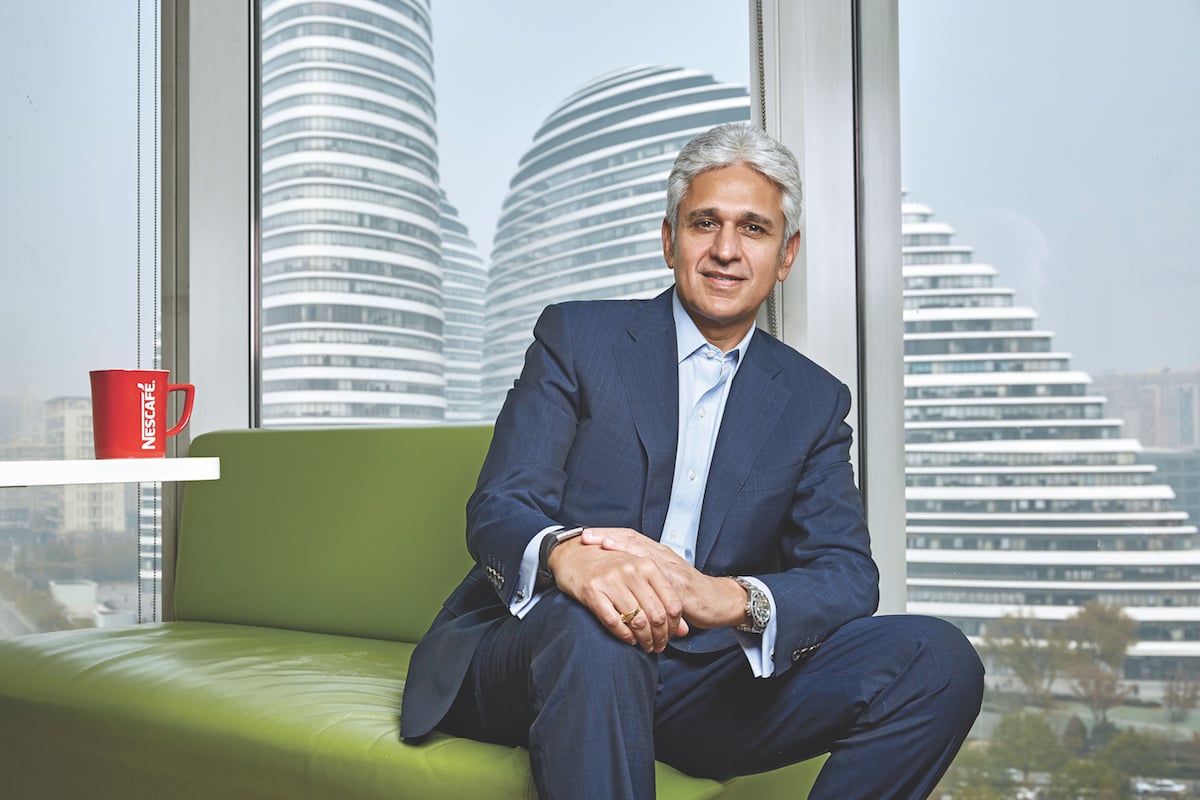
The future is sweet
Looking ahead, Rashid wants to make Nestlé GCR a growth engine for the Nestlé Group. “With a population of 1.36 billion and with the portfolio we have, we have the potential to achieve this ambitious goal,” he says. “And more than that, we want to be a lighthouse when it comes to consumer-centric innovations and digital ecosystems that go beyond food products.”
Rashid further highlights that the company will further contemporise its core categories and digitise its whole enterprise. “Convenience stores, specialty retail and ecommerce are all flourishing in China, along with new channels such as food delivery and business-to-business ecommerce.
So we want to be ready with our channel mix as well as the capabilities that will help us win in China,” he says.
The final effort is a stronger commitment to make shared values a core aspect of its business strategy. “So much great work has been done when it comes to coffee farmers and dairy farmers, and we’ll continue our commitment to China in terms of ensuring we provide them more technical assistance.
We’ll provide them with training, so they can increase their yields per hectare as well as make more quality products.”
We want people with a hunger to succeed and learn, so that they can grow along with the growth of the company.”
Rashid believes all this can be achieved with a highly engaged and empowered team. “A lot of focus we have right now is on ensuring that we have the right people with the right attitude. We want people with a hunger to succeed and learn, so that they can grow along with the growth of the company.”

